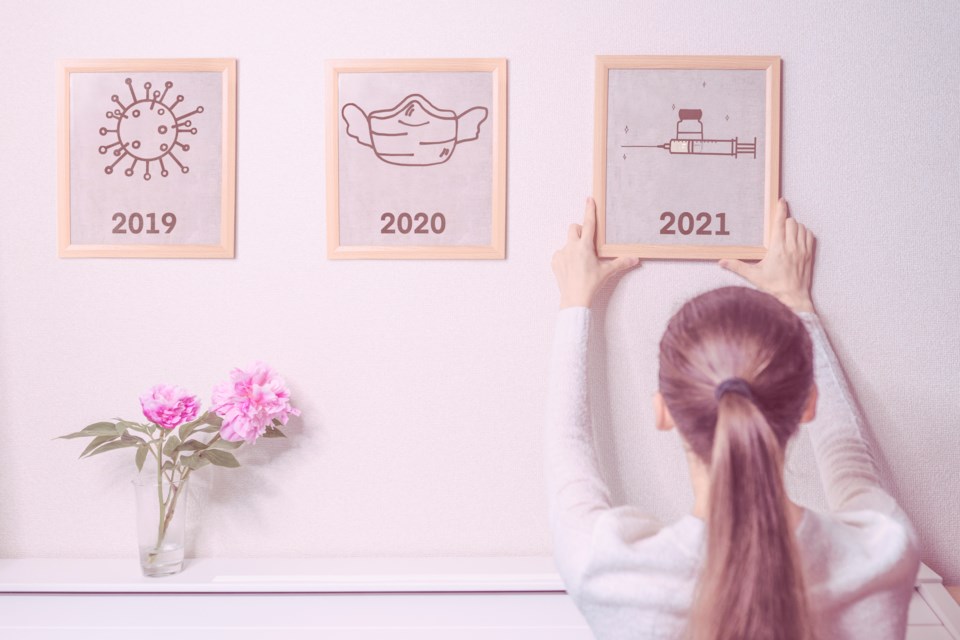A prestigious group of Saskatchewan doctors, teachers, professors, researchers, and social workers have joined forces to document the wider impacts of the COVID-19 pandemic through a project called Remember Rebuild.
“As historians of medicine, we want to try to remember the pandemic, rather than forget it,” said Dr. Erika Dyck. Dyck is a historian, professor, and Canada Research Chair in the History of Health & Social Justice at the University of Saskatchewan.
“We’ve partnered with a number of organizations from Saskatchewan, like the Nurses Union and the Teachers Federation, just so we can be open to collecting interviews or really any material that people want to submit, either for open access or for closed access.”
Dyck said she and her fellow researchers are aware that many people feel burnt out and tired of hearing about the pandemic. On the other hand, history is always in progress, and historians want to lose as little material as possible to the inevitable entropy of time.
The Remember Rebuild project is supported by the COVID-19 Community Archive, which Dyck also helped set up. The COVID-19 Community Archive is hosted at the University of Saskatchewan and serves as a raw data dump for pandemic-related material.
The archive website notes that:
“We welcome submissions about your recent and daily experience in a variety of forms – photographs, social media posts, videos, creative projects, e-mails, blog entries, journals, personal reflections, and more. Your contributions do not need to be polished, finished works: your perspective on this experience is the more important element, and this documentation will form part of the raw material for studying and understanding this pandemic.”
The archive is at https://covid19archive.usask.ca/.
“Imagine 100 years from now, when we’re trying to figure out what to do with the next pandemic,” Dyck said. “There will be a record, a sustainable record, of how nurses were affected by this, or individuals, or journalists.”
The project has been getting good attention and participation in Saskatoon and, to a lesser extent, in Regina, but Dyck said they’re having trouble reaching other communities. She’s hoping smaller cities such as Moose Jaw and Prince Albert, and the hundreds of rural towns and villages in Saskatchewan, will want to add their stories.
The Remember Rebuild project gets its name from researchers’ belief that documenting the pandemic’s impact on systems and systems inequity will help boost recovery efforts. In particular, social justice-related areas such as mental health, substance use, housing instability, and food insecurity have lost a great deal of ground.
People already holding the short end of the stick were forced to watch as the ripple effect of the pandemic made their situation even worse. By recording those effects, governments and communities will be able to learn valuable lessons for rebuilding.
“We’re not trying to make a quota,” Dyck noted. “It’s just really to help. We wanted to create a space for Saskatchewan residents to both kind of honour this (period of time), to be frustrated about it, to grieve it, whatever we want.
“Imagine a time capsule of the pandemic. That will be valuable going forward for future planners, policymakers, historians, whoever.”
The Remember Rebuild team hopes that in addition to the historical value of the undertaking, Saskatchewanians can take comfort knowing family and friends lost because of the pandemic — either directly to the coronavirus disease, or because of loneliness or lost services, for example — will never be forgotten.
An upcoming feature on the Remember Rebuild website, planned for the March anniversary of Saskatchewan’s first COVID-19 case, will be explicitly designed as a digital memorial.
The memorial will take the anonymity of public health dashboard numbers and transform them into people. Families and friends will be able to submit a name, photo, and a short bio of their loved one.
To learn more about the project, visit RememberRebuild.ca or email the research team at [email protected].




